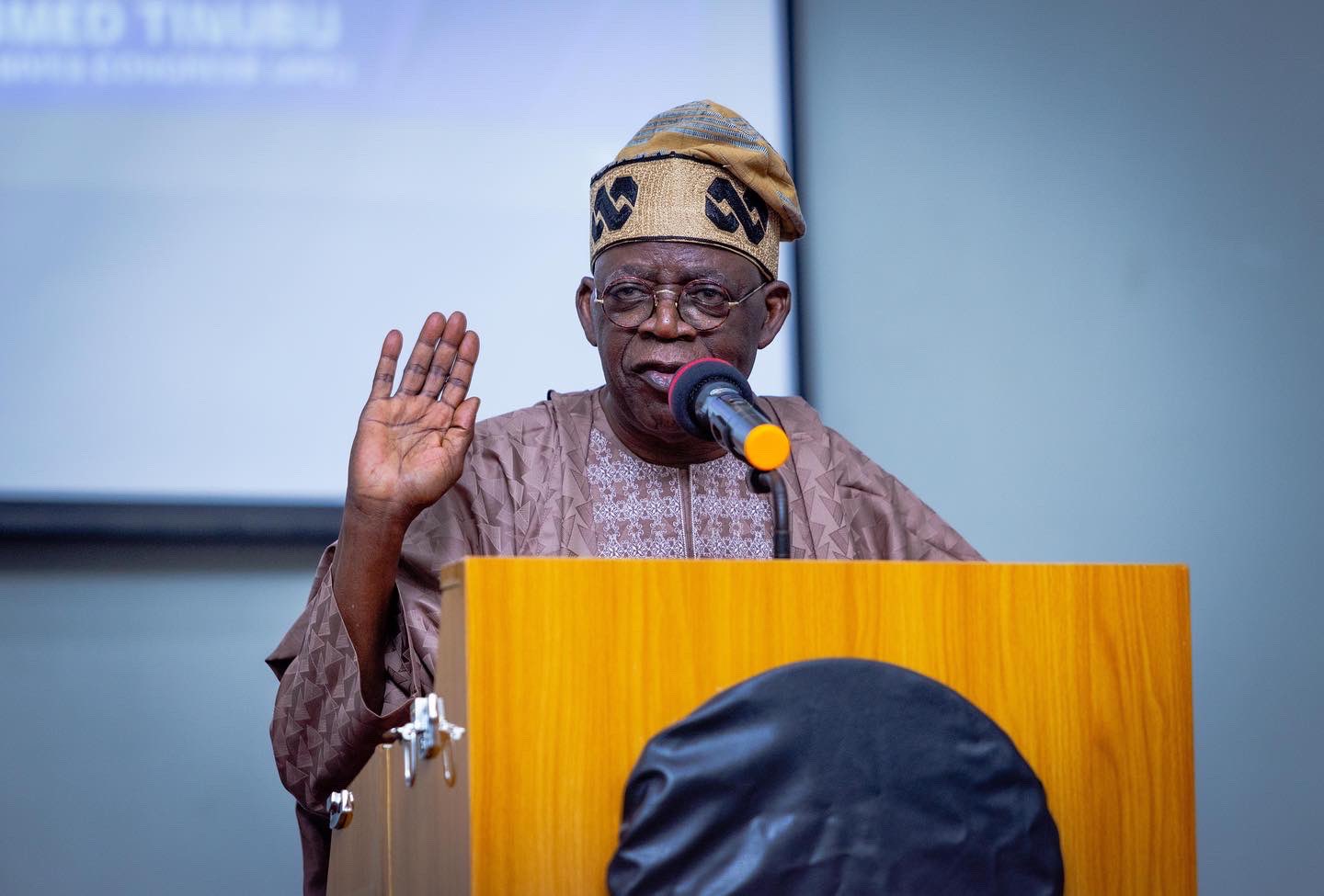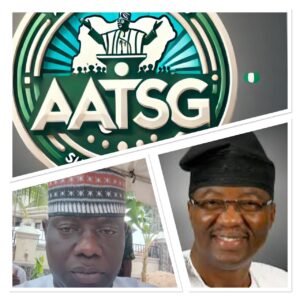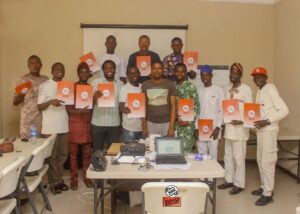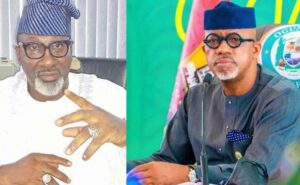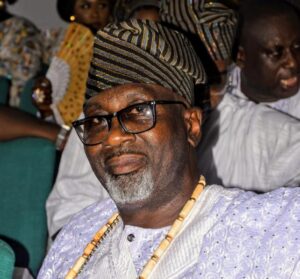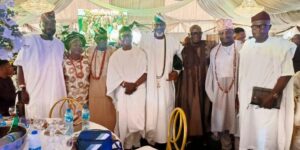Tinubu: Time For A True Democrat To Lead Nigeria
By Otunba Abdulfalil Abayomi Odunowo, National Chairman, Asiwanu Ahmed Tinubu Support Group, AATSG.
Nigeria has a chequered political history. We started very well in 1960 after independence with a true democracy anchored on true federalism. What it meant literally was that each region, North, East and West had control over their resources.
The North had groundnut pyramid, the East was a big exporter of Palm oil while the West had their cocoa plantation which brought in , by far, more revenue to the predominantly Yoruba people.
Each region developed at its own pace. And historical facts show that the West developed faster than other regions owing to the obvious advantage of cocoa over other exported crops. The region erected the tallest building in West Africa , the Cocoa House in Ibadan, the first television station, Western Nigeria Television, WNTV, which later became NTA, when many European countries didn’t have television not to talk of Africa and the Impressive Liberty stadium.
But then came the military boys of 1966 that staged the first coupe de tat and an otherwise prosperous nation with a brilliant future was thrown into chaos.
That coupe upended Nigeria’s path to greatness. The military by practice operates a single chain of command and ipso facto, decrees were promulgated which essentially and gradually turned Nigeria into a unitary system of government till date.
It was from one coupe to the other, some bloody, others bloodless, that Nigeria found itself under General Sani Abacha in 1993 after a democratic stint between 1979 to 1983.
Abacha came with a peculiar notoriety in military rule. He was a perfect example why soldiers should never run any government anywhere in the world.
That’s where Akanbi, Bola Ahmed Tinubu, the former senator, former governor of Lagos State, the national leader of All Progressives Congress, APC, and its presidential candidate comes in.
Tinubu was a senator in the Third Republic. He was in the thick of things after the then military president Ibrahim Babangida unceremoniously annulled the freest and fairest election in Nigeria held on June 12 ,1993.
Abacha staged a palace coupe that sent the Interim National Government, ING, headed by Chief Earnest Sonekan packing and assumed a reign that made terror a statecraft.
To counter this state of terror, a pro-democracy group, National Democratic Coalition, NADECO, was launched.
NADECO members became targets for assassination and deadly attacks. Pa Alfred Rewane, Olu Onagorowa, Kudirat Abiola, all were gunned down by Abacha killer squad giving the revelations at Oputa Panel by seargent Rogers.
Bola Ahmed Tinubu devoted his resources to restoration of democracy through NADECO in spite of obvious danger to his safety even in exile.
Eventually, Abacha died and the exiles of his reign of terror returned home. One of them , Bola Tinubu was elected governor of Lagos State.
Up until that time, Tinubu was not a national phenomenon. But the opportunity of being governor at a time when decades of military rule has made nonsense of democratic structures in the country was no mean task.
It was time to rebuild and restore. And Tinubu hit the ground running. He laid a foundation that succession governments in Lagos has built upon. He has built an army of followers across the country that when he declared his ambition to run for president, his followers answered the call.
Then came the attacks on his personality questioning his famed achievement both in private and public sector. It is worthy of note that Tinubu last held any political office in 2007 after completing his two terms as governor of Lagos.
That is 24 years ago. Yet, he has remained an enigma in political, social, and economic conversations far more than those who have perpetuated themselves in politics since 1999, when the Fourth Republic was ushered in.
As we get closer to 2023 general elections, and in spite of the barrage of unwarranted criticism that has dogged his candidacy, Tinubu remains the most qualified candidate given the democratic credentials of all the contenders.
He is the only candidate that put his life on the line under Abacha in defence of democracy. And Nigerians should better keep that in mind because defending democracy matters. In fact the midterm elections in America has clearly shown that in spite of record inflation under President Biden and the fear mongering of Republicans, Americans voted Democrats to protect the sanctity of their democratic institutions.
In my opinion, the reason why Nigeria is beset with many challenges today is because since 1999, the country has not elected someone that actually suffered to enthrone democracy in Nigeria.
Tinubu’s approval and support made not a few governors and buoyed most of the other officeholders who have become politically powerful across the country.
To quote an independent source, “Although it (Lagos), covers only 0.4% of Nigeria’s territorial landmass, making it the smallest state in the country, (Lagos) accounts for over 60% of industrial and commercial activities in the nation. Lagos is financially viable, generating over 75% of its revenue independent of federal grants derived from oil revenues. It generates the highest internal revenue of all states in Nigeria.” If Lagos was a country, its projected 2020 GDP of over $100billion made it the 5th largest economy in Africa.
For the sake of an even clearer perspective, Lagos State’s Internally Generated Revenue (IGR), in the years of Tinubu’s so-called over-bearing politics, has grown consistently to around N33billion today. The same Lagos had a miserly IGR of around #7 million under the military in 1999- the year Tinubu became the executive governor.
Progressives all over Nigeria have continued to show Tinubu love whenever he steps out with his party to campaign for their votes. The man, who has anointed many eventual winners all over Nigeria is ready for Nigeria’s nod to lead.
Tinubu, as governor, transformed political administration in Lagos State. He employed novel measures to improve service delivery and system efficiency in the state’s public sector.
Before Tinubu became governor, Lagos was a giant field of filth.To clean up Lagos, he separated the Ministry of Environment from the Ministry of Physical Planning and repositioned it to articulate and supervise waste disposal operations. The Lagos Waste Management Authority (LAWMA) was adequately equipped to register its impact in a cleaner Lagos.
In spite of the constitutional constraints bedeviling his vision to tackle the immense energy appetite of a commercial centre state like Lagos, Tinubu acted rather than complained endlessly. He executed a pioneer Independent Power Project (IPP), which added 270 mega watts of electricity to the national grid.
Tinubu met 20 local councils in a state of over seven million residents yearning to have their government closer and more responsive to their needs. He made bold to create additional 37 councils, with a total of 57. And in defence of his action, he told all who cared to listen that it had become impossible for Lagos to deliver good and improved governance to the teeming people at the grassroots. The National Assembly, however, differed. It would not list the councils in the constitution and that created a political crisis of a new dimension between Lagos and the Centre.
When the government of President Olusegun Obasanjo stopped the statutory allocation for Local Governments in Lagos from reaching the state, Tinubu again acted rather than sit and complain. He did not consider capitulation either. He insisted that LCDAs had come to stay as long as Lagosians desired them.
He instituted such an aggressive revenue generation drive of the scale never seen before in the country. He succeeded in breaking the culture of dependence of Lagos State on the monthly federal allocations from the Centre.
Tinubu has through these efforts, advanced the course of true federalism and constitutional development more than Nigerians have given him credit for.
Talking of resilience and consistency, Tinubu was the arrowhead of a stable, robust opposition culture for 15 years while the Peoples Democratic Party ruled at the Centre. Those who taunt that Nigerian politicians have no ideology ought, to be honest, enough to admit that there are a handful of exceptions to the rule.
It is in the interest of Nigeria to give the opportunity to the one man who not only has paid the right dues, but also has the mettle and throttle to prevail at the polls.
Nigerians should vote for Tinubu en masse as the next president of Nigeria because if anyone can restructure this country for optimal efficiency it’s Akanbi omo Alhaja.
This piece was written by Otunba Abayomi Odunowo, National Chairman, Asiwanu Ahmed Tinubu Support Group, AATSG.

